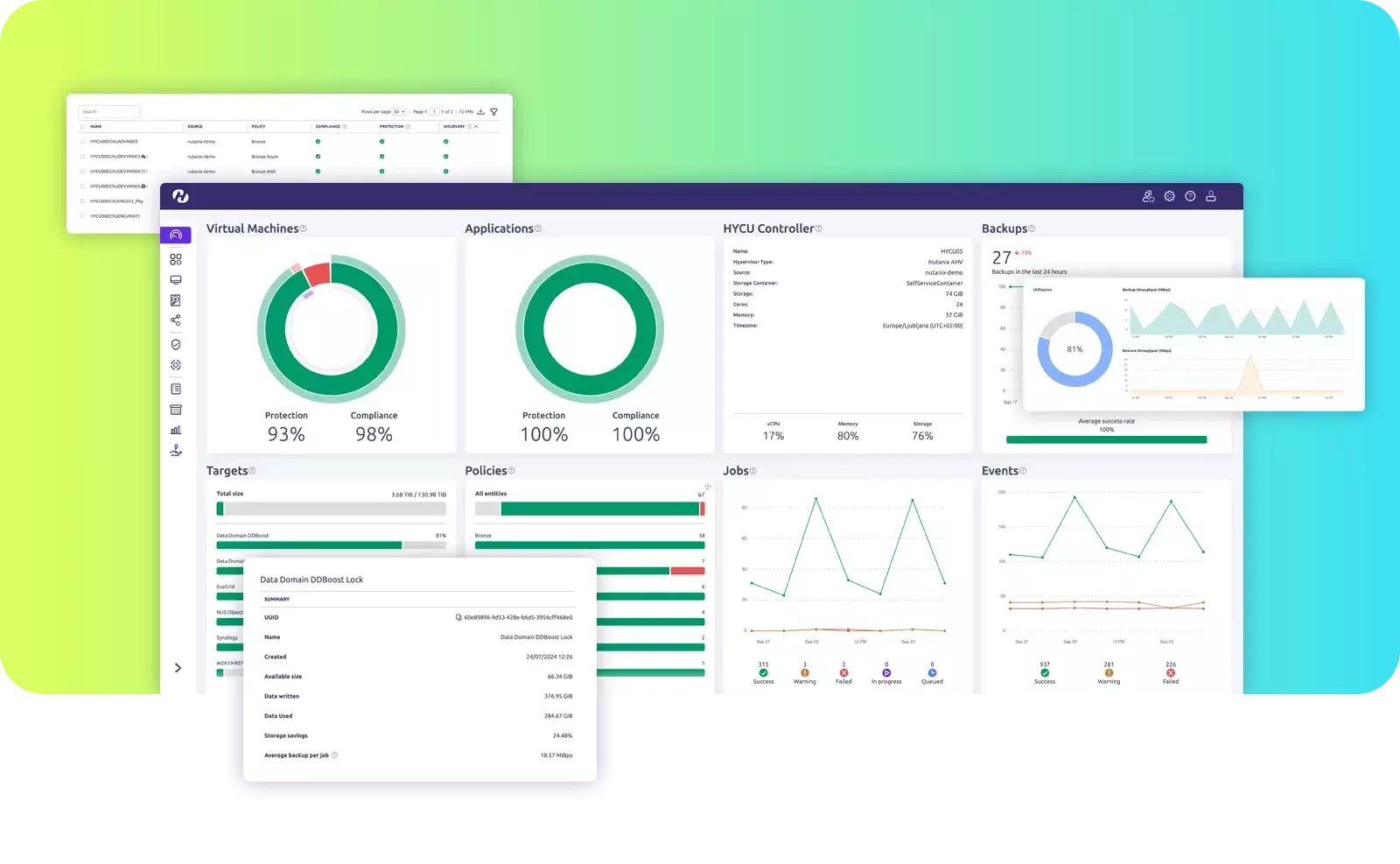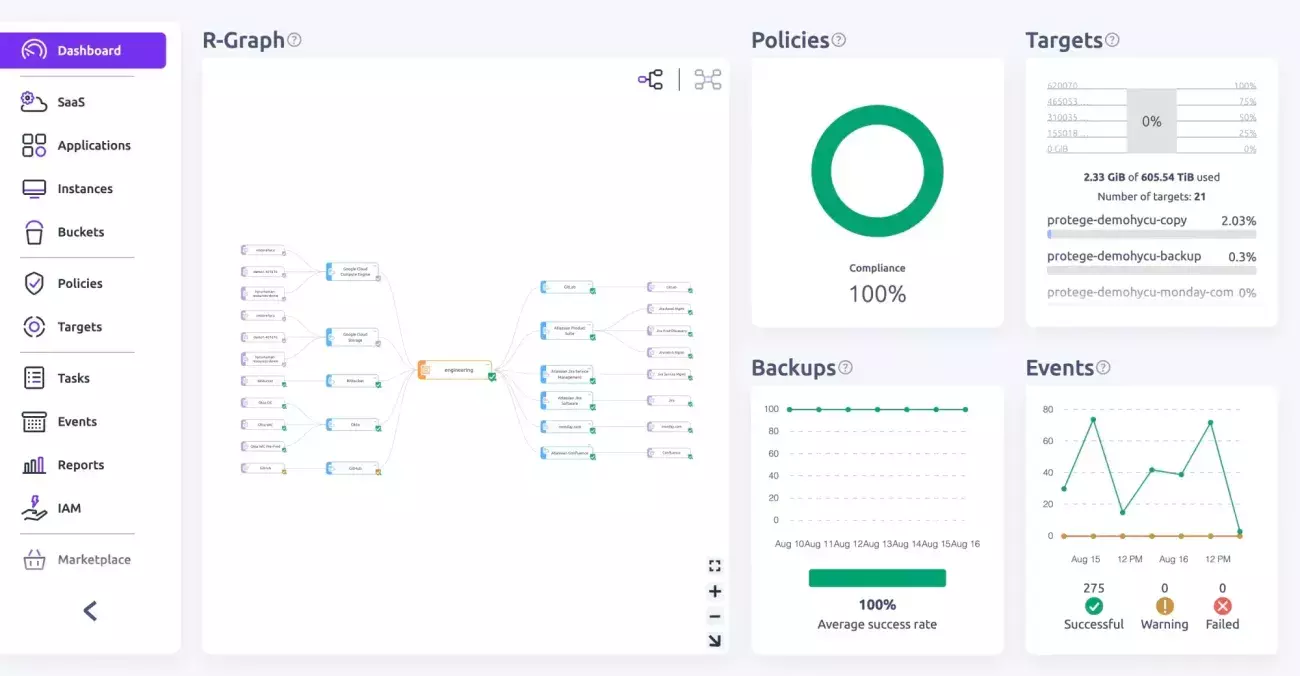Enterprise-class backup and recovery for Jira
Challenge
Solution
See for yourself
HYCU for Jira Backup
Learn more about HYCU and Jira
Common Questions About Backup & Recovery for Jira
Can HYCU restore specific Jira items without bulk recovery?
Yes, HYCU allows granular restoration of Jira elements, including projects, epics, single issues, attachments, and more, without requiring disruptive bulk recoveries.
Does HYCU protect Jira automations?
Absolutely. HYCU can restore Jira automations end-to-end, including conditions, triggers, and other related elements.
How does HYCU handle Jira project-level backups?
HYCU allows you to assign backup policies at the project level, giving you the flexibility to set different backup frequencies and retention policies for different Jira projects.
What does HYCU offer for Jira backup and recovery?
HYCU provides automated backups and rapid restore capabilities for Jira, allowing you to protect projects, issues, attachments, and configurations.
What Jira-specific items can HYCU backup and restore?
HYCU can backup and restore a wide range of Jira items, including projects, boards, issues, epics, sprints, dashboards, filters, and workflows.
What are your data residency options?
Our platform is built to support both multicloud and hybrid cloud environments, offering robust tools for data management, protection, and compliance.
How does the solution ensure data security?
We prioritize data security through enterprise-grade protection measures, ensuring compliance with industry standards and safeguarding sensitive information.
Can the solution scale to major instances?
Yes, our solution is designed to scale with your business needs, providing flexible options for expansion and resource management.
Where can I store my HYCU backups?
Our solution offers seamless integration with major cloud platforms such as AWS, Google Cloud, Azure, and VMware, ensuring compatibility and ease of use.
Read why HYCU customers love our simple, flexible data protection software
Start protecting your Jira data for free

The only solution with comprehensive data protection
- Flexible backup frequency with unlimited retention
- One-click item-level data recovery
- Autopilot backups with ‘set and forget’ policies
- Immutable ransomware-proof copies
- Off-site backup storage in customer owned storage
